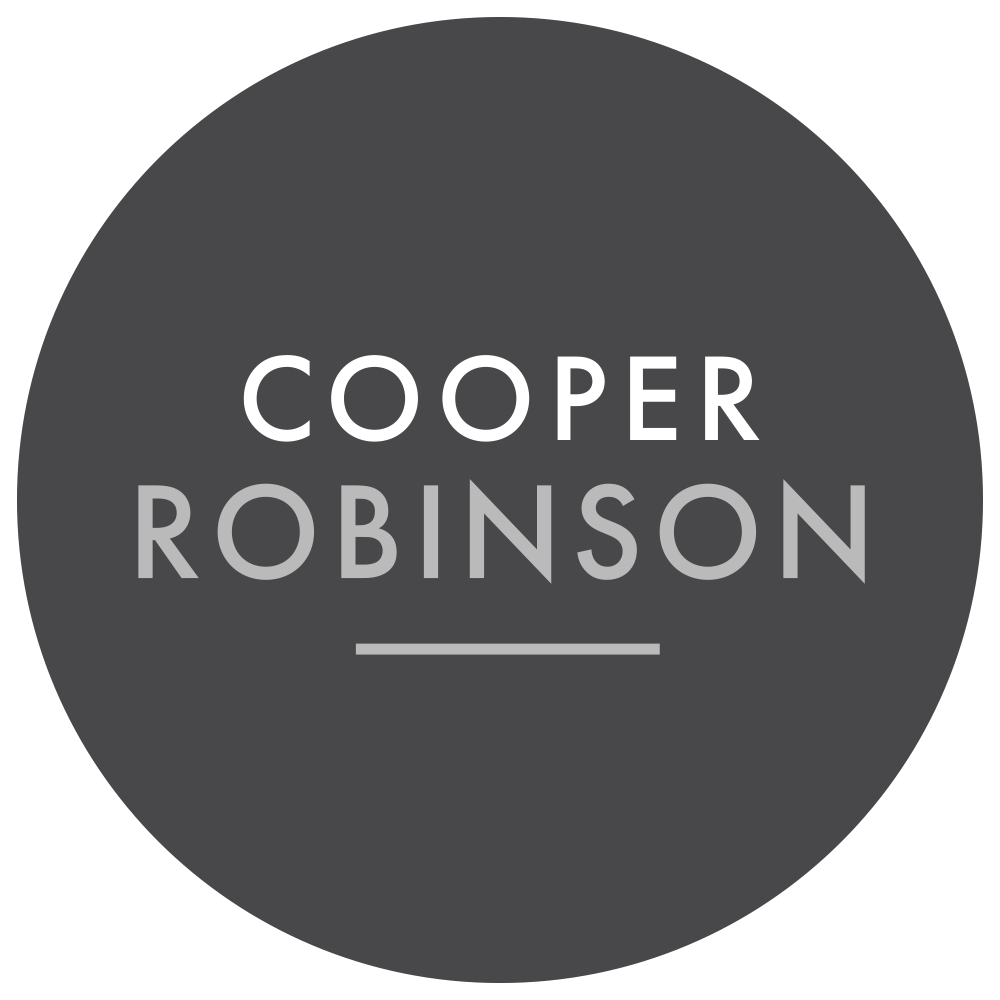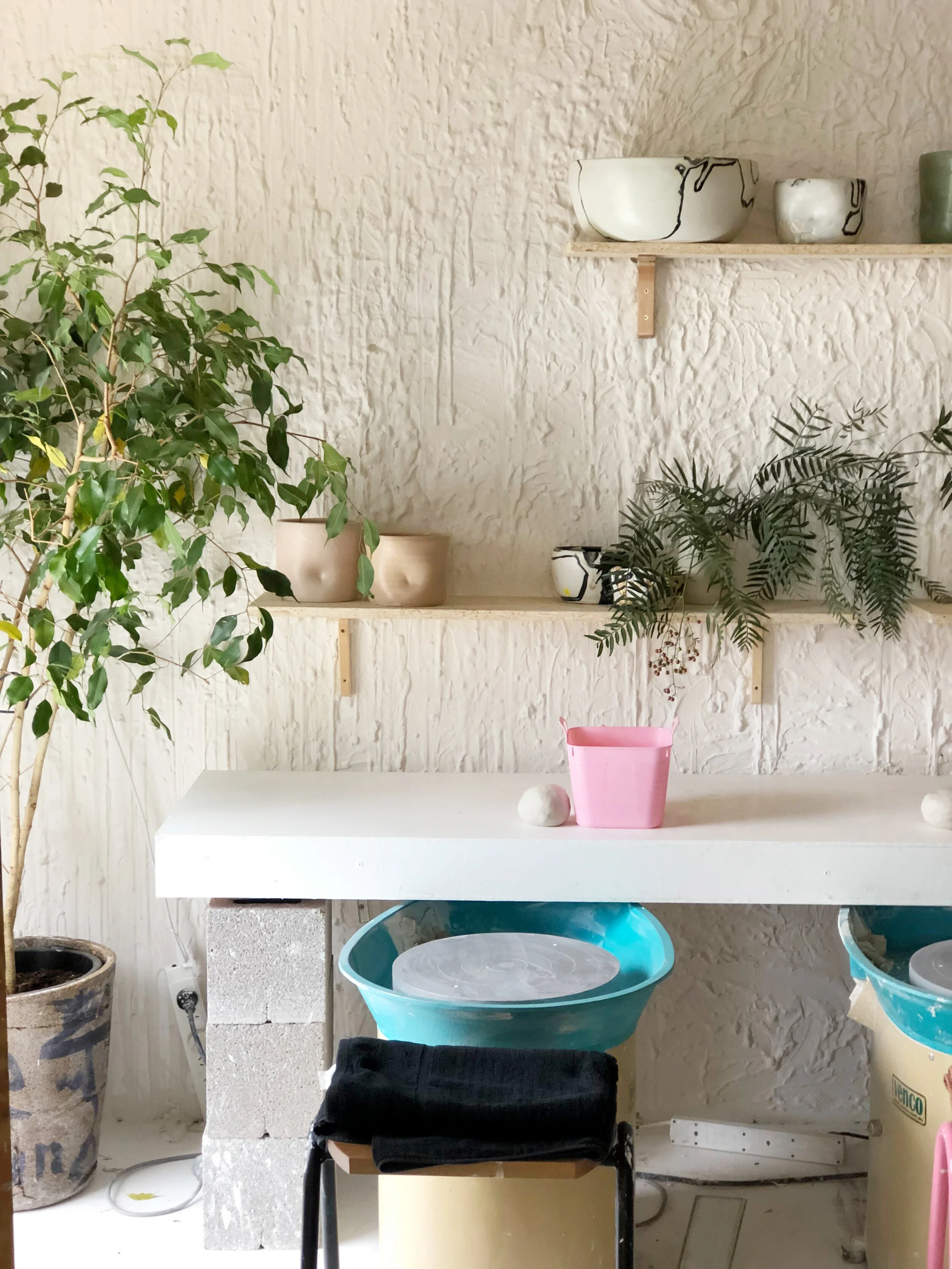For quite a while now at Cooper Robinson, we've been a little obsessed with the incredibly beautiful work of ceramic artist, James Lemon. So, we were absolutely thrilled to attend one of James' workshops in his recently opened, and stunning, Northcote studio.
Although our attempts at pottery won't be flying off any shelves, anytime soon, James' are; and for a good reason. His hand-thrown wares are organic and intuitive, while each piece maintains a contemporary feel. Finishes range from soft, sugary glazes to melty, painterly pieces that are (literally) dripping with texture.
It's been a busy year for this New Zealand native (and comic genius - @jameslemon), in between throwing, glazing, tutoring, painting, firing, social media and admin, we asked him 10 questions…
1. With so many different mediums out there, why clay?
I’m a person that’s drawn to tactility. Clay satisfies a lot of textural experiences that I like. In other words, the same reason your kid likes to play in the mud.
2. There is no art without emotion; how do you feel when you’re creating?
All of it. All of the emotions. Art has allowed me to confront my darkest and celebrate the brightest. And not just when my hands are on a block of clay or a paintbrush too. Without sounding too abstract. Art has become a way for me to engage with the world, a lens to view my surroundings and my relationships. So, it’s a broad and flexible variety of emotions.
“You can bounce ideas and vent, but there’s just something comforting and reassuring when someone is just nearby. ”
3. Do you have any rituals for getting into a creative zone?
Clean my space. Sometimes getting into the zone can be a struggle, I have focus troubles a bit. So, if I clean up, that provides me with a blank canvas. My creative zone isn’t always a comfortable mental space, so if I can make it comfortable around me, I’m less likely to stray and focus my energy into decisions. I guess I’m also sensitive to a lot of visual stimuli so if I have a clear eye line around what I’m working on I’m less likely to be distracted.
4. Why do you think so many artists are uncomfortable with the business aspects of being an artist?
I think it’s a combination of factors making it a very hard space to navigate without the right advice or understanding of your market or context. But the nature of making art comes from a place that doesn’t require a monetary exchange, and when an exchange is required, I think it’s just hard to put a system of measurement on an idea.
5. How have you overcome these challenges?
I’ve talked a lot. The thing I value most in my life are my relationships. I’ve tried to learn from people as much as I can, not in a ‘networky’ way but investing in people who share or challenge your ideas. Also looking to my contemporaries, what’s happening around me?
6. How often do you find yourself at the wheel?
Not as much as I would like. I’m kind to myself now; I used to be quite strict. Working for myself in this capacity means I’m doing lots of jobs. Marketing, accounting, social, customer service, teaching, and then I have to also make my work somewhere in there. This year I’ve also been a builder and plumber ha! I would say though to keep it simple, at least two days a week at the moment, but the wheel is just one aspect of production.
7. Would you say that you’ve heard every reference and/or joke relating to ‘Ghost’ that ever existed??
Heard ‘em all. Never seen it. It has all the things I should go for though, Patrick, tick, Whoopi, tick, ghosts, tick!
8. Your studio is absolutely gorgeous; how important to your creativity is your working, and living, environment?
Unfortunately, very important. Some people can work out of a cupboard which is cheap and less to worry about, but I need space and natural light, I like to feel like I can swing my arms around or pace. I nearly became a spatial designer at one point because of how much satisfaction I get from transforming sterile spaces into ones that welcome you and allow you to relax. My studio was a dusty storage shed and wood workshop, I’ve flipped that, so I guess I still get to play that game.
Company is really important to me too. My previous studio I had for myself and then decided to get someone to come share because I needed the company. You can bounce ideas and vent, but there’s just something comforting and reassuring when someone is just nearby. So, having a space that’s accommodating to other people is something I’ve focused on this time.
9. What’s in the James Lemon pipeline?
Art. I’ve worked hard to be able to afford a studio big enough to support a playful and experimental art practice, and now I need to practice! I have some shows coming up and some new functional work too. Imagine a happy kid in the studio this summer but one that’s drinking beers!
10. Finally, any tips for budding potters?
You’re jumping into a flooded market. Focus on what makes you and work unique and highlight it.
Be yourself.
Sales or Instagram followers do not measure your works' worth.
Rest, your body makes the work, and you have to care for it.
Make friends. Connect with people. Surround yourself with critical conversation.
To see more of James Lemon, click here.
“Most importantly, make the work.
Talk is cheap. Make the work.”
@northside_studio



